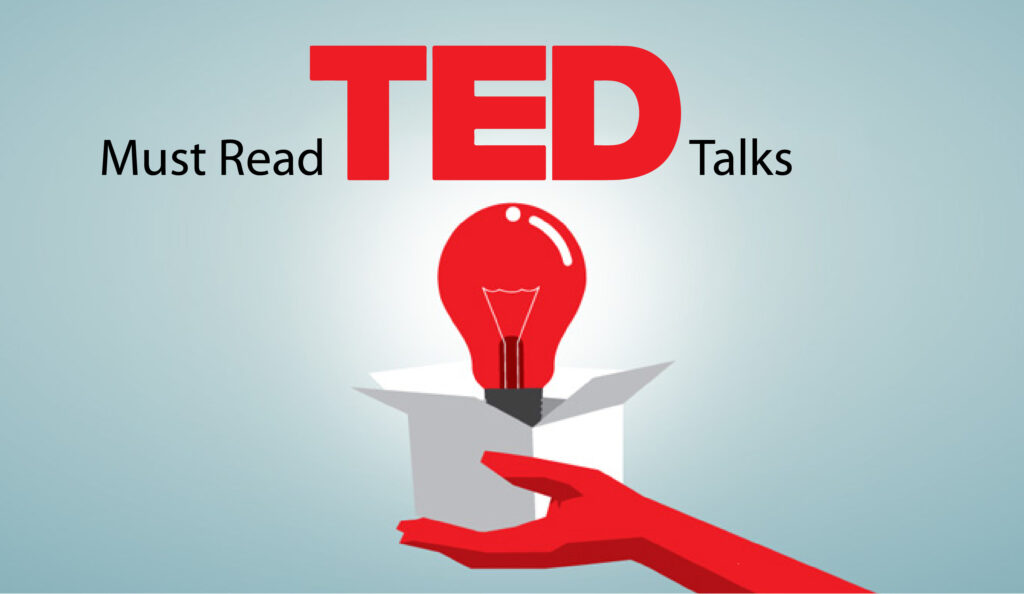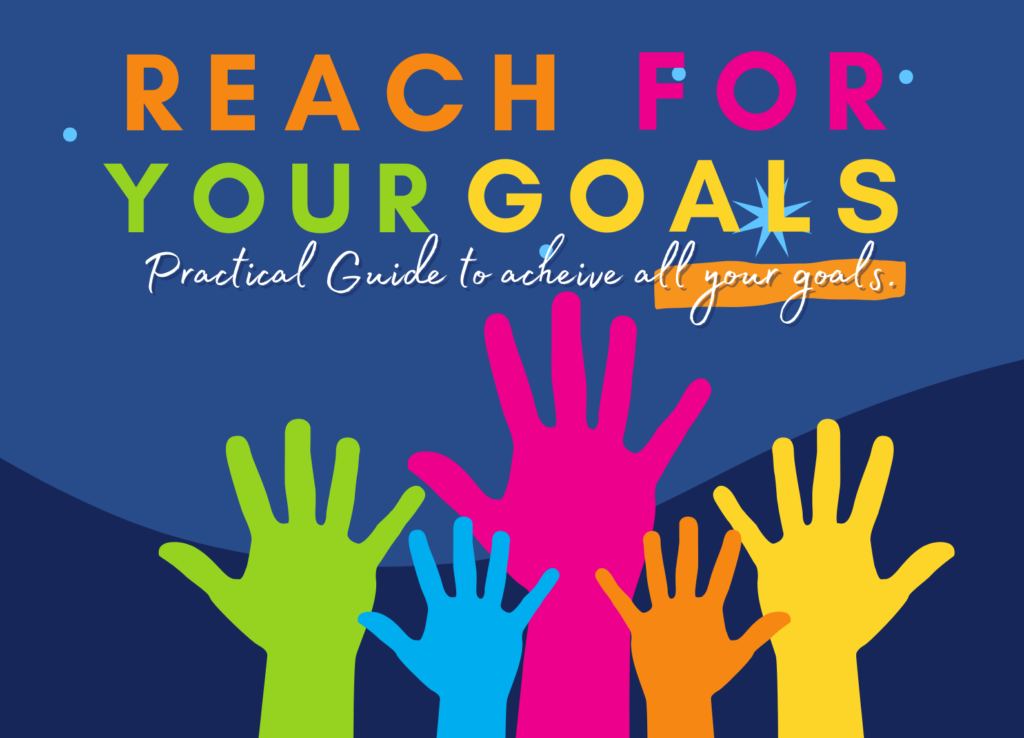TED Talks are a popular way to learn about new ideas, new ways of doing business, and a variety of other exciting and thought-provoking topics in fields like education, self-help, business, technology, and more.
If you are a student, you will undoubtedly benefit from these online videos; however, with thousands of available talks in hundreds of languages, it can be difficult to know where to begin. Take a look at the 5 best TED Talks for Students that will teach you more than a four-year college degree.
Table of Contents
Sleep is your superpower by Matt Walker
About the speaker
Matt Walker’s research looks at how sleep affects human health and disease. He earned a PhD from the Medical Research Council in London, UK, and then went on to become a Professor of Psychiatry at Harvard Medical School. He is currently the Director of the Center for Human Sleep Science and a Professor of Neuroscience and Psychology at the University of California, Berkeley. He is the international bestselling author of Why We Sleep and the host of the TED original series “Sleeping with Science.”
Summary of Sleep is your superpower by Matt Walker
Walker expands on what we all know — that we need to sleep regularly and uninterrupted — in his TED Talks “Sleep Is Your Superpower” by explaining “the wonderfully good things that happen when you get sleep, but the alarmingly bad things that happen when you don’t, both for your brain and for your body.”
Anyone who has attempted an all-nighter before a big test knows that sleep deprivation closes your “memory inbox,” and any incoming files simply “bounce” without being retained. Deep-sleep brainwaves, on the other hand, act as a “file-transfer mechanism at night, shifting memories from a short-term vulnerable reservoir to a more permanent long-term storage site within the brain, and thus protecting, making them safe,” according to Matt Walker.
Improper sleep jeopardises not only learning but also life: a compromised immune system means a compromised immune system. “The shorter your sleep, the shorter your life,” Walker says emphatically.
He has two main pieces of advice for improving your sleep and, hopefully, extending your life: “Go to bed at the same time, wake up at the same time, no matter whether it’s the weekday or the weekend,” and “aim for a bedroom temperature of around 65 degrees, or about 18 degrees Celsius,” slightly cooler than may feel normal. We’d be wise to remember the importance of breaking the habit of staying up late on the internet, having stayed up well past midnight writing this post.
A simple way to break a bad habit by Judson Brewer
About the speaker
Judson Brewer, a psychiatrist and addiction expert, studies mindfulness techniques that effectively help quell cravings of all kinds. Dr. Judson Brewer, MD, PhD, is a thought leader in the “science of self-mastery” and an associate professor of psychiatry and medicine at the University Of Massachusetts School Of Medicine, where he also serves as the Center for Mindfulness’s director of research. In this TED Talks, he discusses how to use mindfulness to control cravings of all kinds.
Summary of A simple way to break a bad habit by Judson Brewer
Brewer teaches us in this TED Talks what happens in our brains when we develop these bad habits, and also how teaching yourself to be mindful can help you target the core mechanisms that assist us break free from our unhealthy patterns and addictive behaviours.
So, what’s the deal with paying attention? According to studies, even when we’re trying hard to pay attention to something—say, this talk—about half of us will drift off into a daydream or have the urge to check our Twitter feed at some point. What exactly is going on here? It turns out that we’re up against one of the most evolutionarily conserved learning processes presently known in science, TED Talks that can be traced back to man’s most primitive nervous systems.
We thank our brains for the brilliant idea, try it, and quickly discover that eating chocolate or ice cream when we’re angry or sad makes us feel better. The process is the same, but the trigger is different. Instead of a hunger signal from our stomach, an emotional signal—being sad—triggers the desire to eat.
So, let me return to my breathing. What if, instead of fighting our brains or forcing ourselves to pay attention, we used this natural reward-based learning process with a twist? What if, instead, we became intensely curious about what was going on in our current experience?
“When we get curious, we step out of our old, fear-based reactive habit patterns. We become this inner scientist where we’re eagerly awaiting that next data point.”
So, if you don’t smoke or stress eat, see if you can tap into this natural capacity the next time you feel the urge to check your email when you’re bored or trying to distract yourself from work, or to compulsively respond to that text message while driving. Simply be curiously aware of what is going on in your body and mind at the time. Instead of “see text message, compulsively text back, feel a little better,” it will just be another opportunity to perpetuate one of our endless and exhausting habit loops. Take note of the desire. TED Talks Become inquisitive. Feel the joy of letting go, and then do it again.
The art of choosing by Sheena Lyengar
About the speaker
Sheena Iyengar has done extensive research on choosing and discovered many surprising facts about it. Since the 1990s, Iyengar’s research has influenced business and consumer-goods marketing. However, she and her colleagues at Columbia Business School cast a much wider net. Her book The Art of Choosing presents her research in the form of an accessible and charming story, with examples from her own life.
Summary of The art of choosing by Sheena Lyengar
Sheena Lyengar’s book, The Art of Choosing, extensively covers scientific research on human decision making, showing you what influences how you make choices, how the consequences of those choices affect you, and how you can adapt to these circumstances in order to make better decisions in the future.
Sheena Lyengar explains what influences our choices, how those choices affect us, and what we can do to make better choices in The Art of Choosing. Here are my three favourites, one from each category:
Lesson 1: It is up to you to determine how much choice you require, but it is critical.
Lesson 2: Having a choice is so important that even thinking about it helps.
Lesson 3: In situations where it’s better for us not to choose ourselves, as long as the choice is communicated rightly to us.
Why Reading Matters by Rita Carter
About the speaker
Rita Carter is a writer, broadcaster, and journalist who focuses on the human brain. Mapping the Mind, her first layman’s guide to neuroscience, has been translated into 14 languages. She hosted London’s nightly news programme “Thames News” for seven years and has written for magazines and newspapers all over the world, including the London Times, Telegraph, Guardian, and New Scientist. She is a Patron of the influential London-based Foundation “Art and Mind,”TED Talks which aims to bring art and science together.
Summary of Why Reading Matters by Rita Carter
During her TEDx talk “Why Reading Matters“, Rita Carter speaks about how important reading is for our brain health. For tens of thousands of years, humans have used the spoken word. However, reading has only been around for about 5,000 years, and most people did not read until about a century ago.
Reading fiction is probably the most important type of reading, according to neuroscience. Carter uses a baby as an example to explain her point. Babies pick up on language automatically if they can hear it and are exposed to it. The most intelligent baby in the world will not learn to read by staring at a book for a lifetime.
A speaking brain is fairly straightforward. Our eyes pick up an image, send it to the appropriate area of the brain, our moments are jogged, the signal is sent to another part of the brain that handles language, and finally a signal is sent to the motor part of our brain so we can physically speak. From identifying an object to verbalising its name is a fairly straightforward process.
However, when we read, your brain does a lot more work and connects parts of the brain that aren’t always used. When we read about something that happened to someone else, the areas of the brain that would be active for that person become active in the reader’s mind as well.
Rita Carter said, “the brain is like a muscle, so when we force our brains to sympathise and see life from varying perspectives, we will increase our empathy as humans. Without the curiosity to want to experience what others live, we will be unable to expand our way of thinking.”
The power of fitness by Vincent Lam
About the speaker
Do you believe you don’t have time to exercise? Vincent Lam, a personal trainer with a kinesiology degree, wants to dispel that myth. He explains in 15 minutes how prioritising your fitness can transform and save your life.
Summary of The power of fitness by Vincent Lam
He began by asking who in his audience exercises for at least 30 minutes per day, five times per week. “Fitness is a way of life. This is not a quick fix but something you have to incorporate in and out of your daily regimen just like brushing your teeth or taking a shower”. This line was taken from an inspirational talk given at the TED Talks event The Power of Fitness.
During his presentation, Lam presented a list of the advantages of exercising. These advantages include: reducing health problems, improving brain functions, improving mental health, teaching discipline, and instilling confidence.
So, in addition to trying it out for fun, being productive, and getting sexier, we commit to exercising in the hopes of achieving a long-term goal of having a good quality of life. He defended the evidence that incorporating exercises and proper food nutrition is a reliable solution for preventing or lowering the risk of chronic diseases such as obesity, diabetes, heart disease, hypertension, and so on.
Second, he explained how exercising a positive effect on our minds has by making us smarter. I was not aware of this benefit before, but after I finish exercising, my mind functions very well and I feel very refreshed.
Third, exercising improves our mental health because it is a necessary component of mental fitness that, according to studies, treats depression, anxiety, and stress. When I was down, anxious, or my mind was clouded by thoughts, I exercised as a coping mechanism to release endorphins and toxic energy from my body.
For the fourth benefit, exercise teaches us discipline and consistency, which are essential for living a healthier lifestyle. Finally, exercise boosts our confidence by demonstrating physical and mental changes in our bodies and minds.
(Disclaimer: Goalympic Team is updating knowledgeable content in this blog from official sources and is not aiming to promote any particular source or business through this and also, do not hold any copyrighting rights under our names for the content)


